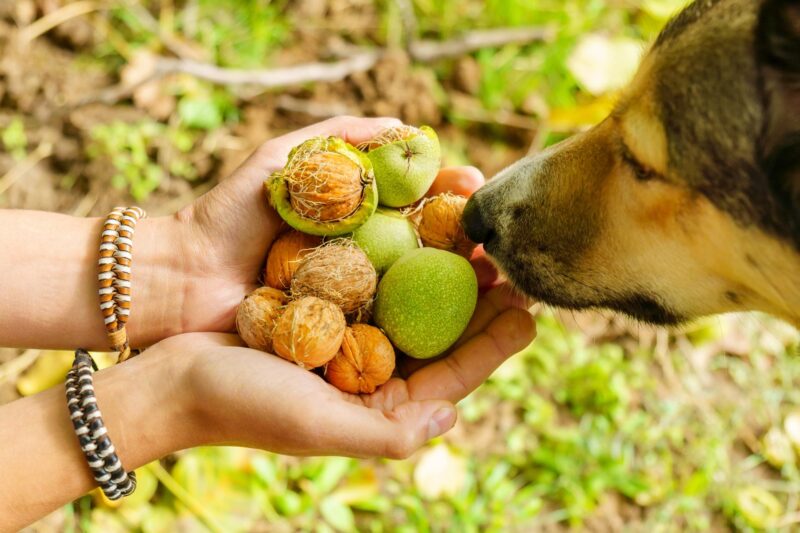
There are many things in our day-to-day environment that are potential problems for our pets that we really don’t actively notice. Did you know that black walnuts and dogs don’t mix? Brownswitch Pet Hospital wants you to be aware of walnut poisoning in dogs.
Are Walnuts Poisonous to Dogs?
Nuts can make an excellent puppy treat (can anyone say peanut butter), but some are big doggy don’ts.
Walnuts in general can be a healthy food, and contain a whole heap of good things like essential fatty acids, vitamins, and antioxidants. Unfortunately for dogs, these benefits are outweighed by significant risk.
Walnuts are pretty fatty, and can lead to serious digestive upset in the form of vomiting and/or diarrhea. They can also be quite large, (especially the black walnuts dogs like to forage from your trees. Most of what is sold in stores are English walnuts) and pose a risk for intestinal obstruction or choking.
They are also prone to growing a mold that can be very toxic. The mycotoxins produced by these molds can lead to walnut poisoning in dogs. While less common in store bought walnuts kept in dry conditions, this black mold can grow on any walnut.
Symptoms of ingestion can include:
- Panting
- Vomiting and/or diarrhea
- Restlessness
- Increased body temperature
- Salivation
- Increased heart rate
- Inappetance
- Muscle tremors
- Incoordination
- Seizure
- Liver damage
Untreated, walnut poisoning in dogs can be quite serious and may even lead to death.
How to Avoid Walnut Woes
The safest way to avoid walnut poisoning is to avoid allowing your dog to ingest walnuts. A small amount here or there (especially if store bought and/or cooked) is likely nothing to panic about, but moldy nuts or the large black walnuts from trees can be a significant risk.
If you suspect your pet may have ingested walnuts and/or they are exhibiting symptoms of walnut poisoning, acting quickly is key. Contact us right away so that we can get started with treatment such as IV fluids to flush the toxin out of the pet’s system, and activated charcoal to stop absorption. Sometimes vomiting may also be induced. Pets with neurological symptoms may need additional care.
If your pet enjoys nuts, stick with the safer ones such as cashews, almonds, and peanuts. You always need to be aware of salt and fat content, though! Not every nut is a good nut!
